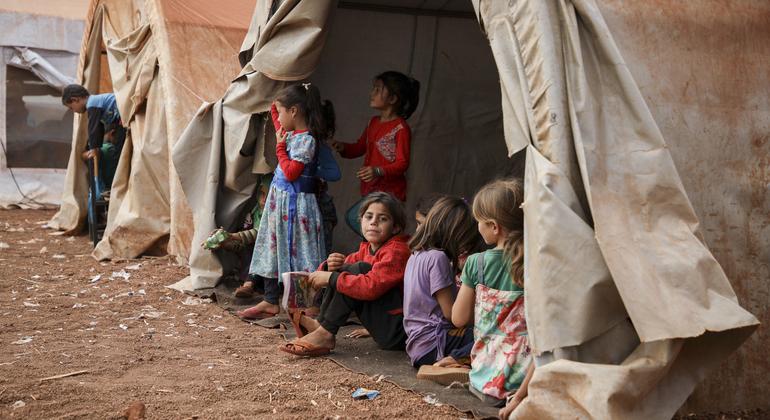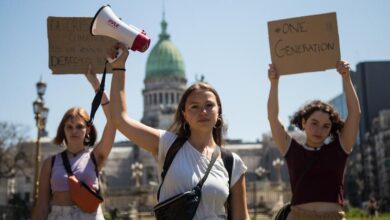The UN chief called for a ceasefire amid a sharp escalation in northwestern Syria

Fighting continued last week led by the terrorist group Hay’at Tahrir al-Sham and other armed factions, has engulfed areas of Aleppo, Idlib and Hama, destabilizing front lines that have been in a stalemate since 2020.
“The Secretary-General warned against the recent escalation of violence across northwest Syria,” United Nations Spokesperson Stéphane Dujarric told reporters at a regular press conference in New York on Monday.
The violence resulted in civilian casualties, the displacement of tens of thousands of people, and severe damage to essential infrastructure.
A key water station serving western Aleppo was inoperable and medical infrastructure was also damaged, including key hospitals in Aleppo and Idlib, leaving hundreds of patients without care.
Protect civilians
“All parties must protect civilians and civilian objects, including by allowing safe passage for civilians fleeing hostilities,”, Mr. Dujarric said.
He added that the Secretary-General emphasized the need for a sustainable solution, and called on all parties to cooperate with United Nations Special Envoy Geir Pedersen to pursue a comprehensive political solution.
“He called for an immediate cessation of hostilities, reminded all parties of their obligations under international law, including humanitarian law, and called for an immediate return to progress. politics supported by the United Nations in accordance with Security Council resolution 2254,” Mr. Dujarric said.
“The Syrian people deserve a political horizon that will bring a future of peace – without further bloodshed.He added.
Suffering gets worse
The conflict in Syria, now in its 14th year, has claimed the lives and livelihoods of millions of people.
The February 2023 earthquake, combined with escalating regional tensions, deepened the crisis and increased vulnerabilities. Since September, more than 500,000 refugees have fled Lebanon to Syria.
In 2024, an estimated 16.7 million people will need humanitarian assistance – the highest number since the crisis began in 2011.

Children in rural Aleppo, Syria burn pieces of cardboard and paper for warmth at night. (document)
Aid programs are at risk
The recent surge in violence has forced the United Nations operations in Aleppo, Idlib and Hama to largely suspend operations due to security risks, leaving millions without access to vital relief services. .
“The UN remains committed to maintaining and implementing, and is working to carry out assessments and scale up humanitarian response efforts as soon as possible” Mr. Dujarric said, noting that relief efforts in areas not directly affected by the fighting are ongoing.
He added that non-governmental organizations (NGOs) are providing food, water, fuel, tents, hygiene kits and medical assistance, while the United Nations continues to use three border crossings. border from Türkiye to deliver aid into northwest Syria.



